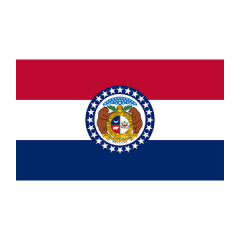Relating to public high schools; to require students to complete a personal financial literacy and money management course before graduation

Relating to public high schools; to require students to complete a personal financial literacy and money management course before graduation
This will close in 0 seconds

Requires a one-half credit in personal financial management and financial literacy for students to graduate from high school. The credit may be included in the Humanities requirements or as an elective.
This will close in 0 seconds

This will close in 0 seconds

Provides that each school district, specially chartered district, and public charter school serving students in grades nine through 12, or any combination thereof, shall provide to all students in grades nine through 12 one or more courses in personal financial literacy and money management, provides that the instruction must include the specified core competency areas.
This will close in 0 seconds

Starting with the graduating class of 2023, Iowa requires students to take half a unit of financial literacy to graduate.
This will close in 0 seconds

Students at all public, charter and state-accredited nonpublic schools must successfully complete a personal financial responsibility course before graduating. This will go into effect with the incoming freshmen of 2024 (aka the graduating class of 2028).
This will close in 0 seconds

The bill would require students pass such personal financial literacy course as a requirement for graduation beginning in the 2024-2025 school year
This will close in 0 seconds

Florida - Financial Literacy Instruction in Public Schools; revising the required credits for a diploma to include one-half credit of instruction in personal financial literacy.
This will close in 0 seconds

Louisiana is the 22nd state to make financial literacy a requirement for high school students. Beginning with the graduating class of 2027, students in the Pelican State will need to complete a one-unit financial literacy course.
This will close in 0 seconds

Michigan - Adding a .5 credit “financial literacy” requirement. The DOE is required to develop "content expectations" for the finance literacy course.
This will close in 0 seconds

In Minnesota, all students in the graduating class of 2028 and after must successfully complete a personal finance course.
This will close in 0 seconds

Beginning with the 2022 graduating class, students in Mississippi are required to take the yearlong College and Career Readiness course to graduate.
This will close in 0 seconds

Missouri State Board of Education updated the state’s graduation requirements for high school students and introduced the requirement for the 2019–20 school year.
This will close in 0 seconds

Beginning with the class of 2024, Nebraska is requiring every student who attends a public high school to take at least one five-credit course in financial literacy to graduate.
This will close in 0 seconds

The bill went into effect August 23, 2022, and now requires a stand-alone financial literacy course for high school students to graduate, beginning in the with the class of 2027.
This will close in 0 seconds

Making the full-credit Economics and Personal Finance course a requirement for high school graduation.
This will close in 0 seconds

Ohio - Regards teaching financial literacy in high school; a half-unit financial literacy requirement for graduation.
This will close in 0 seconds

Requires Oregon students to complete a half-credit personal finance course. This change goes into effect in 2027 for all graduating 12th graders.
This will close in 0 seconds

Pennsylvania is the 25th state to pass financial literacy legislation, over 53% of U.S. high school students will have access to a stand-alone personal finance course. Starting with the class of 2030, all students will need to take a personal finance course in order to graduate.
This will close in 0 seconds

Beginning with the graduating class of 2024, this law requires high school students to demonstrate proficiency in financial literacy before graduation students can do this by taking a financial literacy course aligned with the state’s standards or by passing multiple courses that include the required financial literacy content.
This will close in 0 seconds

South Carolina Department of Education to update the high school graduation requirements to include a half-credit personal finance course within the existing credits. The change goes into effect with the class of 2028.
This will close in 0 seconds

Beginning with the graduating class of 2013, Tennessee has required all students to take a half-credit financial literacy course to graduate.
This will close in 0 seconds

Requires a one-semester financial literacy course for graduation.
This will close in 0 seconds

Virginia Board of Education updated graduation requirements to include a stand-alone, full-credit course in economics and personal finance. The new requirement went into effect with the graduating class of 2015.
This will close in 0 seconds

Requiring each high school student to complete a one-half credit course of study in personal finance as a requirement for high school graduation.
This will close in 0 seconds

Wisconsin has become the 24th state to implement personal finance requirements for high school students. In December 2023, Governor Tony Evers signed a bill requiring students starting with the class of 2028 to take at least a half-credit stand-alone financial literacy course.
This will close in 0 seconds